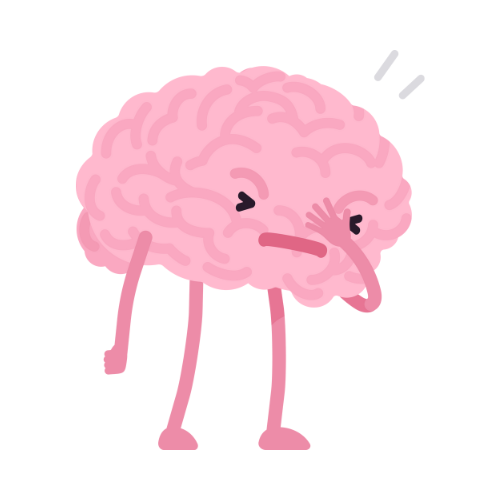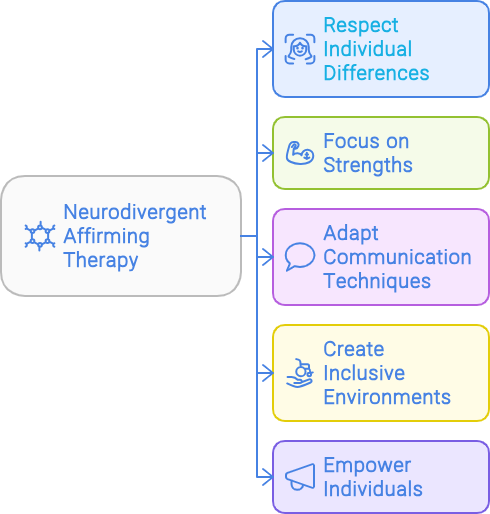
Time blindness in ADHD? You aren’t alone.
What Causes Time Blindness in ADHD 🕰️🌟
Research indicates that time blindness in Attention Disorder Hyperactivity (ADHD) stems from variations in the brain's temporal processing ( time) abilities. The brain structures of ADHD people are different, particularly in areas responsible for processing time such as the prefrontal cortex. Dopamine levels, which play a crucial role in time processing, are also different in people with ADHD.
Additionally, concepts like set theory, which involves how individuals with ADHD relate to external time cues such as sunlight and their internal heartbeat, contribute to time perception differences. Interoception, the ability to sense internal bodily states, is different in individuals with ADHD and is related to time perception. Circadian rhythms, which affect sleep-wake cycles and time perception, also vary in many people with ADHD. It is important to recognize that these differences in time perception are not a result of laziness but a unique aspect of ADHD.
FAQs TLDR about Time Blindness and ADHD ❓
What is time blindness in ADHD?
-
-
- Time blindness, or time agnosia, is the inability to accurately perceive the passage of time, often seen in individuals with ADHD. It affects their ability to manage and organize time effectively.
- How does time blindness in ADHD impact daily life?
- Time blindness can make it difficult to meet deadlines, plan for future events, and manage daily activities. It also affects work productivity, personal relationships, and overall life organization.
- What are some effective strategies for managing time blindness?
- Effective strategies include using analog clocks, journaling past experiences, time blocking, and adopting neurodivergent-friendly approaches such as self-advocacy and self-care.
- Can medication help with time blindness in ADHD?
- Yes, stimulant medications have been shown to improve time perception and management in individuals with ADHD. Consulting a healthcare provider can help determine the appropriate treatment.
- How can time blocking help manage time blindness in ADHD?
- Time blocking involves dividing the day into specific time slots for tasks, helping individuals with ADHD visualize their day and allocate time more effectively.
- Why is self-compassion important for managing time blindness?
- Practicing self-compassion helps individuals with ADHD accept their brain-based differences and focus on developing effective strategies to manage time, reducing feelings of frustration and inadequacy.
- Medical information obtained from this website is not intended as a substitute for professional care. If you have or suspect you have a problem, you should consult a healthcare provider.
-
Is Time Blindness just in ADHD?
- Individuals with Autism Spectrum Disorder (ASD):
- People with Executive Function Disorders:
- Have difficulty memory, forgetfulness, planning, organizing, and managing time.
- Individuals with Sleep Disorders:
- Conditions like delayed sleep phase disorder disrupt the internal clock.
- People with Neurological Conditions:
- Brain injuries or disorders affecting the temporal lobes can lead to time blindness.
- Depression, dyslexia, trauma and bipolar disorder can impact time perception
Signs of Time Blindness
Living in the Present: For those with ADHD, time may seem like an abstract concept. They may experience life as a series of present moments without a clear sense of how these moments connect to the past or future. This can lead to a feeling of constantly reacting to immediate demands rather than planning ahead. Does this sound like you?
-Nearsightedness to Time: Imagine looking out to sea but only being able to see ships when they are very close. This is similar to how people with ADHD perceive time; they often don't "see" future deadlines or events until they are right upon them. This nearsightedness to time can make long-term planning and goal-setting extremely challenging.
Temporal Discounting: ADHD people also may prioritize immediate rewards over future benefits because of the disruption in the time horizon. For example, they might choose to watch TV now rather than work on a project due next week because the immediate reward feels more tangible. This can lead to procrastination and last-minute rushes. Although this doesn't work in our current fast-paced world, in other settings, and in the past, it may have been an evolutionary advantage.
How Time Blindness Impacts Daily Life Activities for ADHD Individuals 📅💼
Challenges in Organization and Time Management 🗂️🕑
- Disruptions in Daily Planning: Time blindness leads to severe disruptions in organizing, sequencing, and managing daily tasks. Individuals may struggle to prioritize and plan effectively, often focusing on immediate tasks at the expense of future planning. Estimating time can be a big challenge. ADHD adults can benefit from using tools like planners, alarms, and apps that may help support the ADHD brain with organization and time management.
- "Now, Not Now" Perspective: This perspective causes immediate tasks to overshadow future responsibilities, leading to procrastination and last-minute rushes. Understanding this tendency can help you develop strategies to balance immediate and future tasks, such as breaking tasks into smaller steps and setting specific deadlines.
Effects on Work and Relationships 💼❤️
- Work Performance: Time blindness can result in missed deadlines, decreased productivity, and a perception of unreliability at work. Seeking accommodations or support from supervisors can help manage these challenges.
- Strained Relationships with Colleagues: Colleagues may feel frustrated or disappointed due to missed deadlines and inconsistent performance. Open communication with colleagues about your ADHD can foster understanding and collaboration. Building a supportive work environment can mitigate these challenges.
Damage to Self-Esteem 💔
- Repeated Failures: Frequent failures to meet deadlines and manage time effectively can lead to feelings of incompetence and a negative self-image. Remember that these struggles are part of ADHD and do not define your worth. Celebrate small successes and seek support to build confidence.
- Negative Self-Perception: The ongoing struggle with time management can contribute to a persistent negative self-perception. Practicing self-compassion and focusing on your strengths can help counteract negative self-perceptions. Therapy or coaching can provide additional support.
Academic Performance 📚
- Impact on Studies: Time blindness can severely affect academic performance, leading to missed assignments, poor exam preparation, and lower grades. Utilizing academic support services, such as tutoring and time management workshops, can improve performance.
- Increased Academic Stress: The struggle to keep up with academic demands can result in significant stress and anxiety. If a child is dealing with additional issues of impulsivity or distractibility, tests and homework can just feel like an enormous amount of pressure. Escape to video games, social media, and other tempting ways to numb can be attractive, and kids can then develop secondary problems such as screen addictions or the stress that we know social media can bring. Developing a structured study routine and seeking accommodations, like extended deadlines, can help manage academic stress.
Overall Impact on Daily Life 🌟
- Daily Functioning: Time blindness exacerbates the challenges of ADHD, making daily life activities more difficult to manage. Using reminders, setting routines, and seeking support can improve daily functioning.
- Cycle of Stress and Frustration: The ongoing struggle with time management can create a cycle of stress and frustration, affecting overall well-being and quality of life. Breaking this cycle requires patience and self-compassion. Seeking professional help and building a support network can provide the tools needed to manage time more effectively and reduce stress.
It's Not Your Fault 💖
It's important to understand that time blindness is a neurological difference, not a personal failing. The brain's perception of time is different, which is a fundamental aspect of ADHD. Recognizing this can help reduce self-blame and foster self-compassion. In adhd adults, executive functioning issues such as memory, prioritization, forgetfulness, and distractibility ( especially when a task is boring)are all exacerbated by time blindness.
Harnessing Strengths 🌟💪
While time blindness presents challenges, individuals with ADHD often possess unique strengths, such as the ability to be deeply present and hyper-focused on tasks they are passionate about. These qualities can be harnessed to achieve great things, especially when combined with effective time management strategies.
Strategies and Tips to Manage Time Blindness in ADHD 🛠️⏰
Using Real Clocks Everywhere 🕰️
Analog clocks provide a visual representation of time passing, which can be more intuitive for those with time blindness compared to digital clocks. Placing clocks in various locations around the home and workplace can help individuals with ADHD stay aware of the time throughout the day.
Mindfulness and Past Experiences 🧘♀️📖
Keeping a journal to record past experiences and outcomes can help individuals with ADHD create a mental timeline. This practice can improve the ability to foresee future events and plan accordingly. Reflecting on past successes and failures can provide valuable insights for future planning. Everyone can benefit from these strategies but they are beneficial for people who struggle with executive functions.
Time Blocking Techniques 🗓️
Time blocking involves dividing the day into specific blocks dedicated to each task. This method can help those with ADHD visualize their day and allocate time more effectively. Over time, this practice can enhance the ability to estimate how long tasks take and improve overall time management skills. The use of an alarm or timer may be helpful and can help pull you away if you get hyper-focused. These are not always perfect solutions.
Adopting Neurodivergent-Friendly Approaches 🤝
Using strategies tailored to the unique needs of neurodivergent individuals can be particularly effective. This includes self-advocacy, self-accommodation, and creating a supportive environment. Communicating time management challenges to others and seeking their understanding can reduce stress and improve cooperation.
Building Supportive Relationships 👥
Surrounding oneself with understanding and flexible individuals can significantly reduce the stress associated with time management challenges. Supportive relationships can provide the necessary encouragement and assistance in developing effective time management strategies.
Developing Self-Compassion and Self-Care 💖
Recognizing that time blindness is a brain-based difference and practicing self-compassion can reduce feelings of frustration and inadequacy. Accepting these differences allows individuals to focus on developing strategies to manage time more effectively when required to in the neurotypical world. Regular self-care practices, such as adequate sleep and stress management, can improve overall well-being and enhance more neurotypical time management skills. Prioritizing self-care helps maintain focus and reduce the negative impacts of time blindness.
Medications for Time Blindness in ADHD💊
Stimulant medications have been shown to help make time perception more neurotypical. This can help adhd adults with some of the demands and expectations that may be unavoidable. Consulting with a healthcare provider can help determine the appropriate medication and dosage to manage time blindness symptoms effectively.
Creating Effective Routines for Time Blindness 📅✨
Understanding Your Energy Levels 🔋
- Track Energy Cycles: Monitor your energy levels throughout the day to identify peak times for focus and productivity. Use this information to schedule high-energy tasks during peak periods and less demanding tasks during low-energy times.
- Why: Recognizing your natural energy rhythms helps you align tasks with your energy levels, making it easier to manage time effectively.
Creating a Safe Space for Planning 🏠
- Designate a Planning Area: Create a calm, distraction-free environment for planning your day. Regularly review your schedule in this space to anticipate energy dips and prepare accordingly.
- Why: A dedicated planning space reduces anxiety and stress, allowing you to manage time more proactively and effectively.
Physical vs. Mental Energy Lists 📝
- Categorize Tasks: Separate tasks into those requiring physical energy and those needing mental effort. Allocate tasks based on your current energy type to avoid burnout.
- Why: Distinguishing between physical and mental energy helps you distribute your workload more effectively, preventing cognitive overload.
Master List for Energy Allocation 🗂️
- Comprehensive Task List: Maintain a master list of tasks, noting the type of energy required for each. Choose tasks that match your available energy each day to manage resources efficiently.
- Why?: Viewing your capabilities as a resource that needs careful management helps prevent burnout and ensures steady productivity.
Energy Prioritization 📋
- Prioritize by Energy Demands: Identify and prioritize tasks based on their energy requirements. Balance high-energy and low-energy tasks throughout the day to maintain productivity.
- Why?: Prioritizing tasks based on energy levels helps you find harmony in your workload, making it easier to manage time and avoid exhaustion.
Acknowledging and Respecting Limits 🚧
- Recognize Energy Boundaries: Learn to say no or delegate tasks that exceed your energy budget for the day. Embrace self-awareness and self-compassion to avoid overexertion.
- Why?: Respecting your energy limits empowers you to manage time wisely and maintain overall well-being.
Addressing Procrastination Through an Energy Lens 🚀
- Break Down Tasks: Break larger tasks into smaller, manageable steps that align with your energy levels. Tackle these smaller tasks to reduce overwhelm and increase completion rates.
- Why?: Viewing procrastination as a sign of misaligned energy management helps you approach tasks more strategically and effectively.
Mindfulness for Energy Awareness 🌿
- Incorporate Mindfulness: Practice mindfulness to become more aware of how different tasks impact your energy. Regularly check in with yourself to assess energy levels and adjust activities accordingly.
-
-
- Why? Mindfulness enhances self-awareness, allowing you to make better choices about how to spend your energy and manage time.
-
-
Energy Conservation Strategies 💻
- Use Digital Tools: Leverage digital tools and organizational techniques to streamline tasks and conserve energy. Apps and planners can help you stay organized and focused.
-
-
- Why?: Utilizing technology and structured approaches helps you manage time more efficiently, reducing the risk of feeling overwhelmed.
-
-
Preparation as Energy Preservation 🧠
- Prepare in Advance: Gather necessary materials and information ahead of time to reduce cognitive load during task execution. Plan for energy-efficient ways to complete tasks.
- Why?: Advance preparation makes tasks more manageable, helping you stay focused and efficient.
- Prepare in Advance: Gather necessary materials and information ahead of time to reduce cognitive load during task execution. Plan for energy-efficient ways to complete tasks.
- Reverse Scheduling for Energy Management 🗓️
- Plan Around Energy Peaks: Schedule demanding tasks during high-energy periods and less critical tasks during low-energy times. Include buffer periods to prevent energy depletion.
- Why?: Reverse scheduling aligns tasks with your energy levels, enhancing productivity and reducing stress.
- Plan Around Energy Peaks: Schedule demanding tasks during high-energy periods and less critical tasks during low-energy times. Include buffer periods to prevent energy depletion.
- Feeding Your Brain and Body 🍏
- Prioritize Physical Health: Ensure adequate sleep, proper nutrition, and regular physical activity to maintain energy levels. These habits support mental energy and overall well-being.
- Why?: Taking care of your physical health is foundational to managing energy and time effectively, leading to better productivity and quality of life.
- Prioritize Physical Health: Ensure adequate sleep, proper nutrition, and regular physical activity to maintain energy levels. These habits support mental energy and overall well-being.
- By implementing these strategies, individuals with ADHD can create effective routines that help manage time blindness, improve productivity, and enhance overall well-being.
Implementing Effective Time Management Strategies 📅✨
Regularly Reviewing Schedules 📅
Regularly reviewing and adjusting schedules can help you stay on track and manage time more effectively. This practice allows for flexibility and adaptation to changing circumstances and can help with time blindness in ADHD.
Setting Realistic Goals 🎯
Time blindness impacts your ability to feel you have control over your life. Setting smaller goals and knowing you can check them off may help you feel you have some control over them.
Conclusion 🎉
Time blindness in ADHD is a significant challenge, but with the right strategies and support, it can be managed effectively. By understanding the neurological basis of time blindness and implementing practical time management techniques, individuals with ADHD can improve their ability to plan and organize their daily activities, leading to a more balanced and fulfilling life.
-
Medical information obtained from this website is not intended as a substitute for professional care. If you have or suspect you have a problem, you should consult a healthcare provider.
Other Links on the Site you might want to check out
My favorite resources on Time Blindness in ADHD
Black Girl lost keys








